Israel is celebrating its 72nd year of independence in the midst of an unprecedented global health crisis. SARS-CoV-2, the coronavirus that causes COVID-19, has ravaged whole countries and their economies, affecting over three million people worldwide, killing over 200,000 as of late April, and upending millions of lives.
In Israel, while restrictions in place since mid-March are slowly being rolled back, traditional Israeli celebrations for Independence Day (Yom Ha’atzmaut), when millions descend on the country’s many parks to eat copious amounts of barbecued food, have been banned per emergency government regulations to prevent mass gatherings. Residents are required to stay home and only go out for essential items, “fresh air,” or exercise.
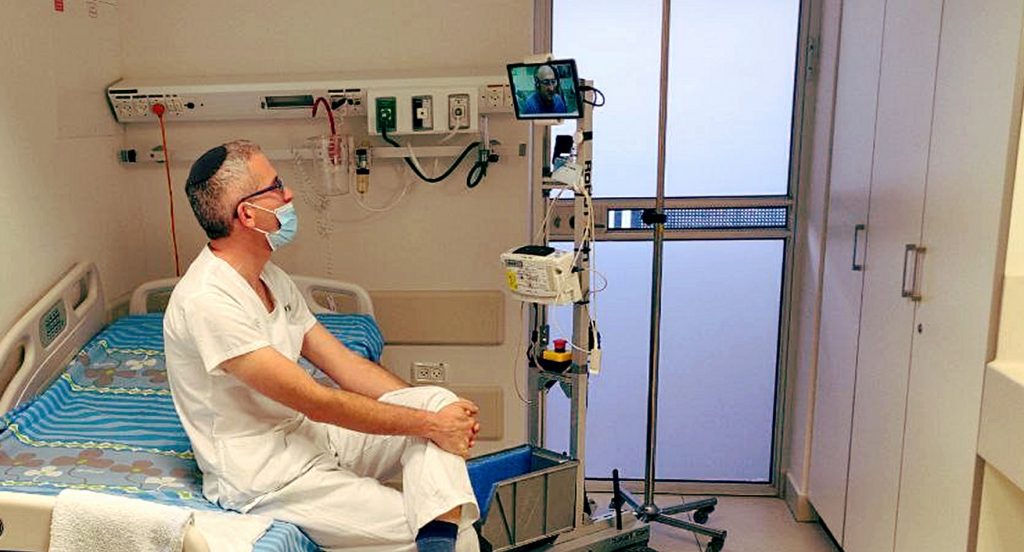
But despite the more muted atmosphere this year, Israelis have much to be proud of. Over the past several months, Israeli technologies and research in health, robotics, diagnostics, mental wellbeing, and drug development have been on the frontlines in the fight against COVID-19.
Israel is home to close to 200 startups and companies with wide-ranging solutions to offer, according to a directory put together by Startup Nation Central (SNC), the Israeli non-profit organization that tracks the local innovation ecosystem. Not to mention the dozens of initiatives and solutions developed by Israeli scientists and researchers, including faster diagnostics tests, vaccine developments, and models for tracking spread zones.
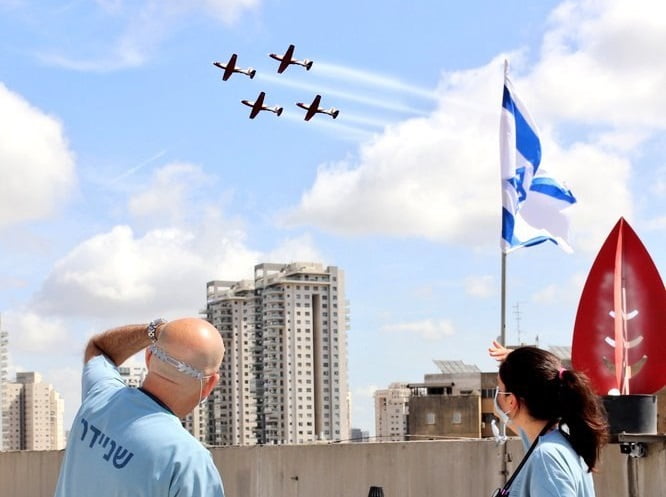
“Israeli innovation can help to cope with the corona[virus] crisis, which is placing a growing existential danger before the whole world. The Israeli brain has extensive experience of times of emergency and thinking outside the box, and we want to do our bit in this difficult hour,” said Professor Eugene Kandel, CEO of Startup Nation Central and former chairman of Israel’s National Economic Council.
To mark Israel’s 72nd Independence Day, here are 72 technologies helping in the fight against COVID-19. The list, broken down by category, is by no means comprehensive.
Remote healthcare and patient monitoring
EarlySense is a remote care company that developed a clipboard-sized sensor that can be embedded in any mattress to monitor sleep, vital signs, and motion, to help clinicians in early detection of patient deterioration. The devices are being used at Israeli hospitals including the Sheba Medical Center at Tel Hashomer Hospital.
Cordio Medical‘s speech analysis tech was adapted to remotely monitor and diagnose the status of COVID-19 patients based on voice samples. The tech is being piloted at Haifa’s Rambam Hospital.
Vocalis Health launched a voice-based test study to triage, screen and monitor for COVID-19 symptoms. Vocalis researchers hope to build a point-of-care diagnostic to save lives and prioritize testing and treatment.
Essence Group, a leading provider of IoT-based advanced telecare solutions for seniors, is collaborating with strategic partner FocusCura in the Netherlands to install Israeli-made technology in coronavirus hotels for quarantined persons. The Herzliya-based company is also joining forces with Australian senior-care facilities.
Tyto Care, a leading Israeli telehealth company, has seen surging demand for its remote medical testing devices that help healthcare organizations monitor patients either infected with the coronavirus or under hospitalized monitoring.
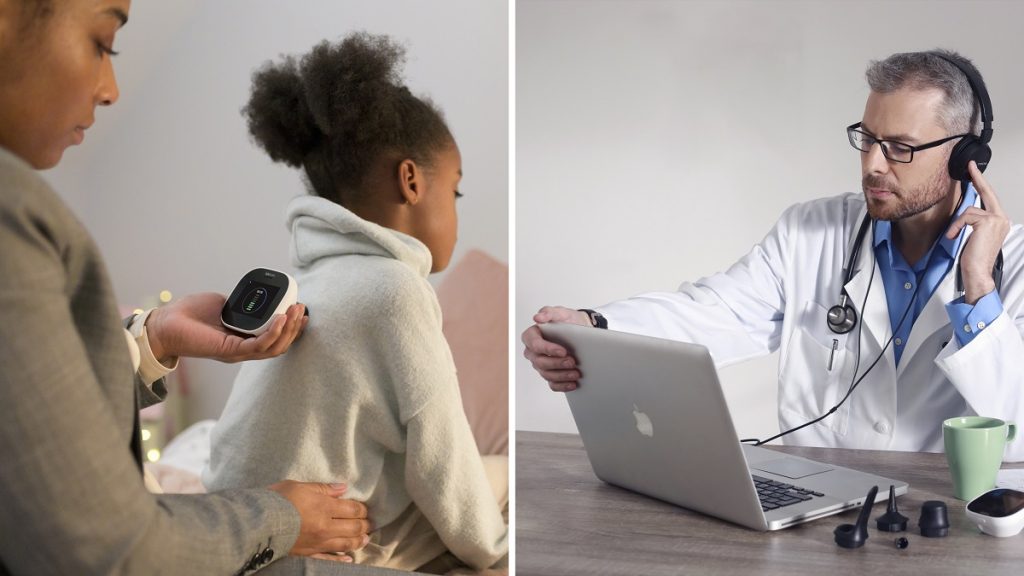
XRHealth provides coronavirus patients in Israel and the US with virtual reality telehealth services.
Datos Health developed a hospital-grade remote care platform that offers an automated approach to patient care and data handling. Datos’ platform is being used at the Sheba Medical Center to care for coronavirus patients. The company says its solution can also be used for home hospitalization.
Biobeat develops wearable devices that enable remote, non-invasive, and medical-grade accurate monitoring of numerous vital signs and other significant physiological parameters. The devices can be used in hospitals, clinics, or for home care.
Sweetch, the Tel Aviv-based mobile health platform, is enabling medical teams to remotely monitor, follow, manage and optimize intervention in COVID-19 positive patients with chronic diseases
Neteera Technologies developed a sensing platform for contact-free detection and monitoring of objects and humans. It has partnered with the Defense Ministry, Israeli defense company Elbit Systems, Elta (a subsidiary of IAI) as well as Israeli companies EchoCare Technologies, and Vayyar to adapt military radar systems to remotely monitor the vital signs of patients suffering from COVID-19.
Diagnostics, testing, screening, and support
Diagnostic Robotics developed a digital risk assessment and monitoring platform to help health officials track the spread of the coronavirus in Israel and assess their progress in bringing it under control.
BATM Advanced, a provider of real-time tech for networking solutions and medical laboratory systems, is developing a quick lab diagnostics kit for the novel coronavirus with expected results in approximately 25 minutes
Novamed Ltd, an Israeli life sciences company operating in the in-vitro rapid diagnostics market is developing a home diagnostics kit for COVID-19.
SmellTracker is an online platform that enables self-monitoring of an individual’s sense of smell to detect early signs of COVID-19 developed by Israeli scientists at the Weizmann Institute.
Israeli researchers at the Hebrew University of Jerusalem (HU) developed a testing method for COVID-19 that they say is up to 10 times faster and more cost-effective than the methods currently used to analyze samples.
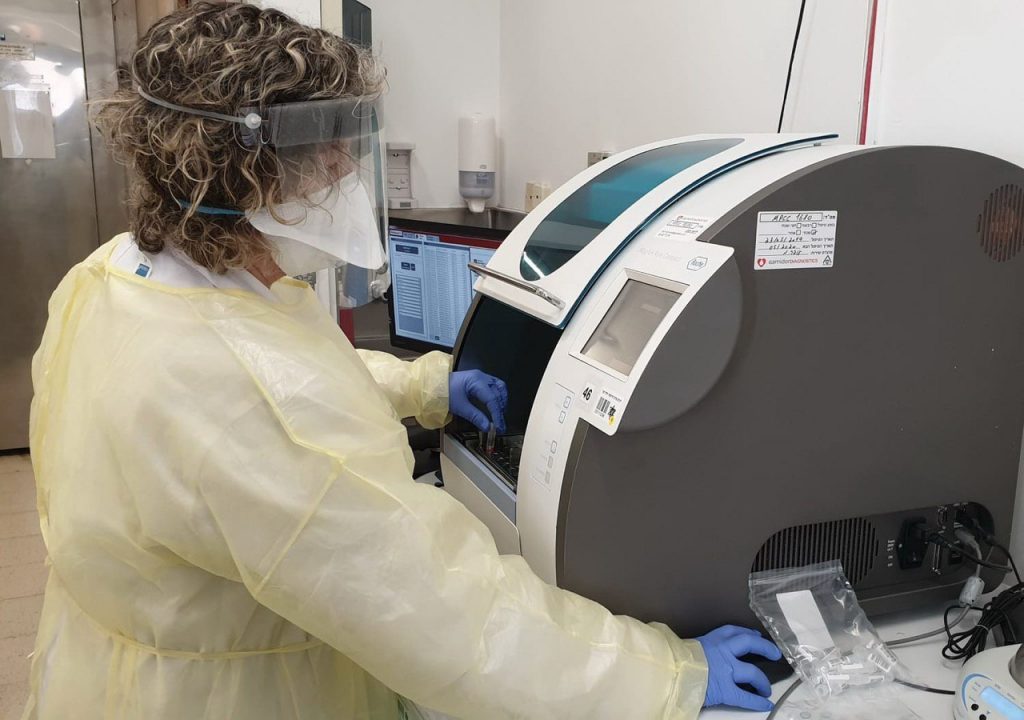
BeyondMinds is a Tel Aviv-based artificial intelligence company that bridges the gap between academic research and the mass adoption of enterprise-scale AI applications. The tech is helping hospitals prioritize patient care.
Sight Diagnostics has deployed its safe blood test technology for coronavirus patients at Israel’s Sheba Medical Center. The hospital is using its OLO compact blood analyzer for rapid, lab-grade complete blood count results in its special lab.
K Health developed an AI-powered primary care platform that provides accurate, data-driven information about users’ symptoms and health. The company built a COVID-19 suite of solutions that includes risk assessment and analysis. K Health’s site launched a coronavirus section where users in the US can receive information on testing centers near them.
Medial EarlySign uses machine-learning solutions to build clinical insights for health organizations. It has partnered with Israeli HMO Maccabi Healthcare Services to deploy a new AI-powered algorithm that identifies individuals estimated to be at the highest risk of severe COVID-19 complications.
MeMed Diagnostics built a diagnostic tool for distinguishing between bacterial and viral infections like the coronavirus. The company is now also developing a diagnostics test for early detection of viruses and the prediction of potential patient deterioration.
VocalZoom developed ‘Polaro’ laser sensor technology enabling spectral skin imaging to detect medical vital signs. The tech allows for non-invasive, rapid screening of possible COVID-19 symptoms in hospitals for real-time detection and triage of symptomatic individuals, and at mass transit hubs including airports and train terminals.
PulmOne developed a desktop device for pulmonary lung measurements and function testing. Its tech can be used for pulmonary function screening of patients “who may have contracted the COVID-19 virus, in particular, to determine who may get priority for hard-to-find ventilation,” according to the company which participated in a webinar hosted by OurCrowd last week.
Salignostics develops saliva-based rapid diagnostic tests and is currently said to be working on a test kit that will look for the virus in saliva (Hebrew link).
EDAS Healthcare enables the real-time diagnosis of infectious diseases using algorithms and has been working with the Hadassah Medical Center in Jerusalem. It is now adapting its tech to detect COVID-19.
MyHeritage, an Israeli-founded genealogy platform is opening a lab for accelerated COVID-19 testing in Israel with Chinese company Beijing Genomics Institute (BGI)
Treatment
MigVax is a newly formed Israeli company working to develop a vaccine for the novel coronavirus based on research by scientists at the Migal Galilee Research Institute. It has secured a $12 million investment led by Israeli crowdfunding venture investment platform OurCrowd. In early March, scientists at Migal announced that they successfully developed a vaccine for a deadly coronavirus affecting poultry and are working to adapt the vaccine for humans. Phase I and II trials are set to start in the summer.
The Israel Institute for Biological Research (IIBR) reported “significant progress” early this month toward a vaccine against the novel coronavirus. Trials on rodents are already reportedly underway.
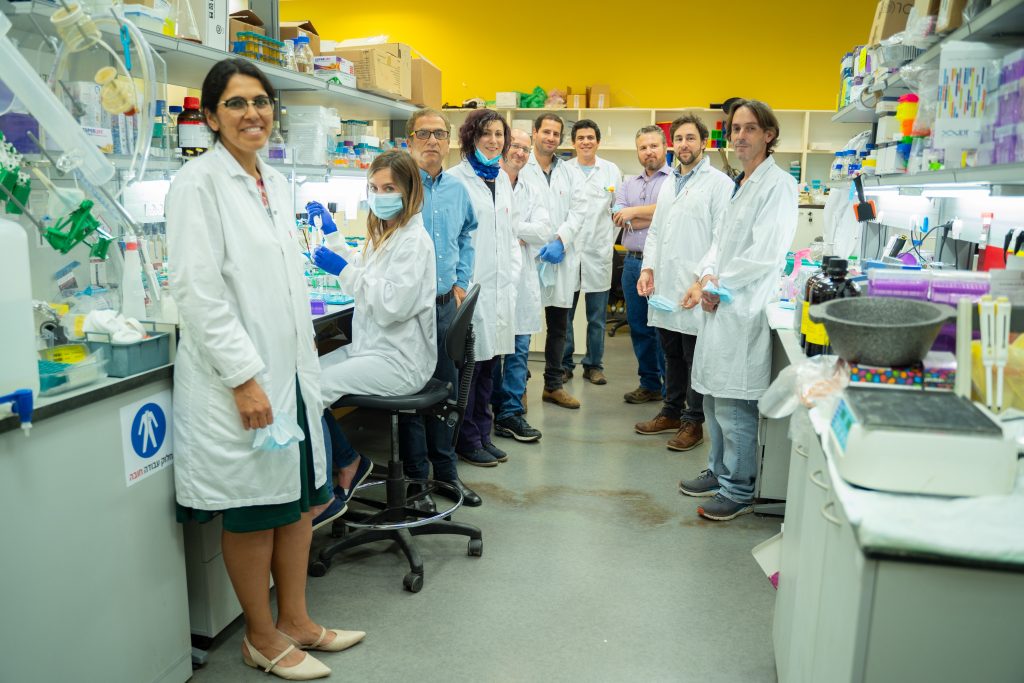
Kamada, a commercial-stage plasma-derived biopharmaceutical company, is developing a “passive vaccine” for the coronavirus as potential treatment for severely ill patients. The company says its “Anti-Corona (COVID-19) IgG product is expected to be produced from plasma derived from donors recovered from the virus, which is anticipated to include antibodies to the novel coronavirus.”
RedHill BioPharma developed an investigational drug called opaganib to treat patients with COVID-19 in Israel as part of a compassionate use program, a treatment option that allows for the use of not-yet-authorized medicine for severely ill patients. Preliminary findings demonstrated clinical improvement in a trial with two patients.
NeuroRX, a US-Israeli clinical-stage pharmaceutical company, received FDA authorization to begin a mid-stage trial for the use of Aviptadil to treat acute respiratory distress in coronavirus patients, in partnership with Swiss drug development company Relief Therapeutics.
Pluristem Therapeutics is a regenerative medicine company that develops cell therapy designed to treat various medical conditions. The firm says its PLX cell therapy may potentially “reduce the incidence and/or severity of COVID-19 pneumonia and pneumonitis.” Earlier this month, the first patient suffering from COVID-19 complications was treated with the therapy in the US under the FDA’s Single Patient Expanded Access Program, also called a compassionate use program.
SaNOtize, co-founded by Israeli-Canadian scientist Dr. Gilly Regev, was granted approval by Health Canada to conduct a Phase II prevention and efficacy trial for its proposed antiviral early treatment for use against COVID-19.
Sign up for our free weekly newsletter
SubscribePepticom aims to use artificial intelligence to streamline peptide drug discovery. It announced that it is implementing its tech on various coronavirus proteins to identify novel inhibitors that can fight the virus, and is looking for partners to validate and develop these drug candidates.
Onecell Medical, developed a unique multi-parametric single-cell analysis device enabling breakthrough therapeutic solutions in cancer cell therapy. Since the outbreak, the company has pivoted towards identifying antibodies’ (mRNA) sequences capable of neutralizing the virus, according to Start-Up Nation Central.
Teva Pharmaceuticals donated millions of doses of a malaria drug, hydroxychloroquine sulfate, to US hospitals last month in a bid to meet the demand to investigate the medicine as a potential treatment candidate for COVID-19. Early tests have not shown the drug to be effective and a panel of experts convened by the National Institute of Allergy and Infectious Diseases last week has recommended against the use of hydroxychloroquine in combination with another drug, azithromycin.
Protection and prevention
Sonovia is developing novel technology for an anti-pathogen fabric and has manufactured face masks infused with the tech.
Soapy Care developed an IoT-powered hygiene micro-station to provide users with a precise dose of soap and water.
TradeGel developed the Hetromistin Instant Crystal HetroCleaner, an antiseptic, antibacterial, hypoallergenic solution designed to keep skin protected
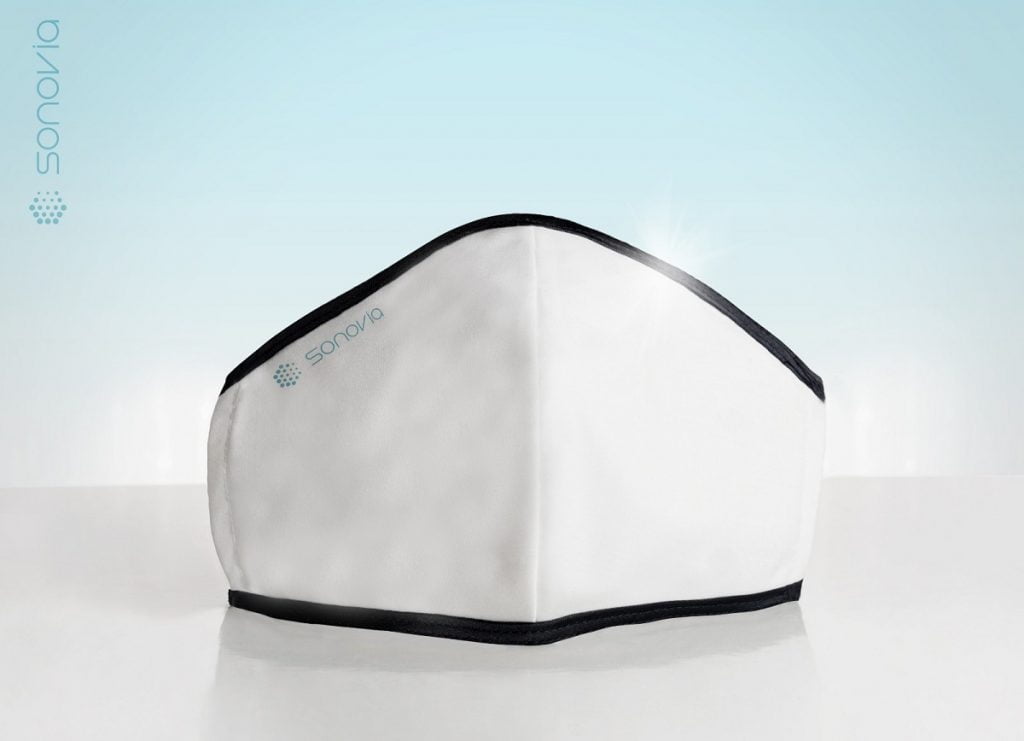
Temi is AI-powered robot assistant developed by Israeli company Robotemi that is being used in hundreds of hospitals, medical centers, nursing homes, and corporate buildings in Asia to help minimize human-to-human contact as millions of people take precautions due to the novel coronavirus outbreak worldwide
Tamar Robotics, an Israeli developer of neurosurgical robotic technology solutions of the Tamar NIV group, developed and deployed a novel protective patient hood that the company says prevents the spread of COVID-19 and protects hospital workers who apply non-invasive ventilation (NIV) therapy to patients with the virus.
RoboTiCan‘s autonomous robotic mobile systems’ experts in the southern town of Omer rejigged their company’s existing KOMODO robot, which was initially designed for security and patrol services, to speedily develop the NurseeBot robot for the Covid-19 unit at Soroka Medical Center in Beersheva. The robot offers a non-contact communication method for doctors to interact with coronavirus patients.
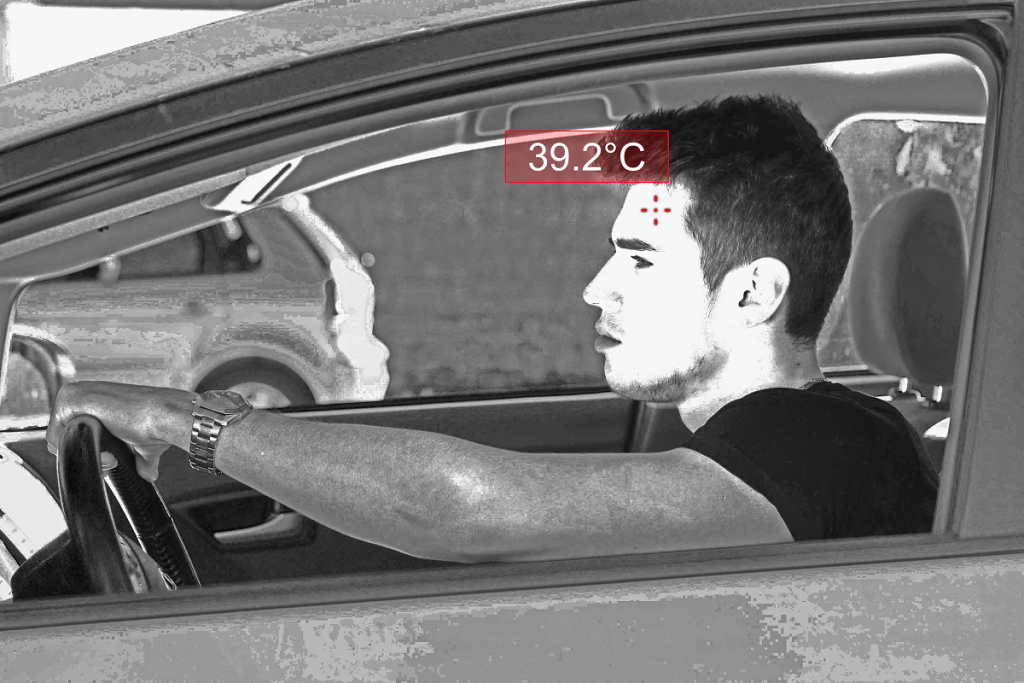
UVeye‘s tech was initially created to detect bombs and explosives strapped to cars but has been modified to help detect whether drivers and passengers in a vehicle have a fever, thus providing an important heads up to health professionals that someone in the car may be ill and need additional testing for COVID-19.
Iron Drone – This drone company leveraged its deep knowledge of thermal cameras to develop a screening device called ThermoGate to remotely measure body temperature. The device is being used at the Jerusalem Venture Partners offices to screen staff and visitors for fever.
Critical care tech
The Ambovent is a low-cost prototype of an adapted ventilator system created by an Israeli group of Air Force electronics experts, robotics specialists, and medical professionals.
Inovytec is the developer of the Ventway Sparrow ventilators now being mass-produced by an IAI production facility.
EchoCare Technologies develops a non-wearable home-monitoring system for senior care. The company worked with Neteera Technologies, Israeli defense company Elbit Systems, Elta (a subsidiary of IAI), the Defense Ministry, and Vayyar to adapt military radar systems to remotely monitor the vital signs of patients suffering from COVID-19.
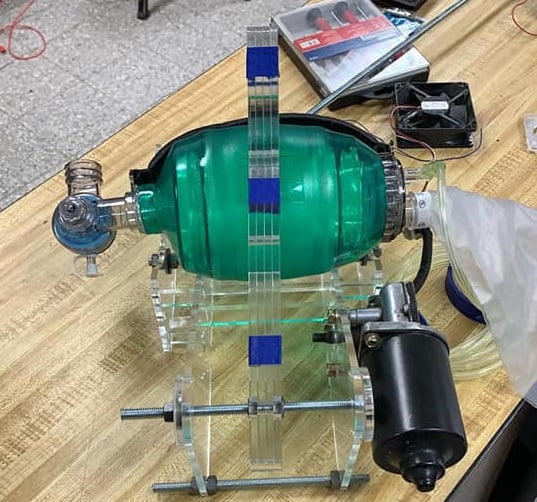
Growponics designs and builds automated, computerized and controlled hydroponic systems. When the pandemic hit, the company teamed up with physicians and experts in mechanical ventilation to develop a quick and simple solution for respirating patients with COVID-19, according to Start-Up Nation Central. The device is based on a manual respiratory balloon
Stratasys has been 3D-printing disposable face shields and testing swabs for healthcare providers and testing centers in the US, alongside partners.
Tikkun Olam Makers, a global non-profit created by the Reut Group has mobilized a “maker army” across the US and the world to make face shields and other protective gear to combat the spread of the virus. The organization built an open database of over 40 solutions for makers to launch their own response teams.
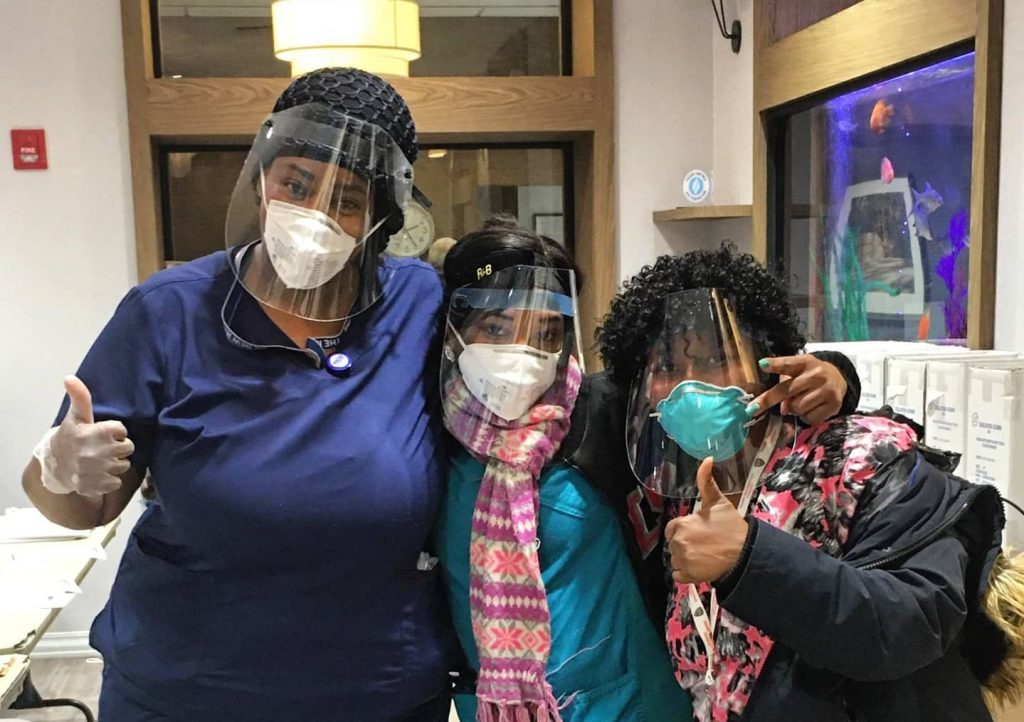
Virimask developed masks that protect the whole face. The company says the masks protect including bacteria and viruses including COVID-19, exhaled aerosols, and environmental aerosols. The first shipments are expected at the end of the month.
Duram Mask develops personal escape masks that offer respiratory protection against smoke, gases, particles, and chemical and biological agents.
Mental health and general wellbeing
Houseparty‘s video-chat app, developed by Israeli founders, has surged in popularity since the pandemic struck, becoming one of the products “that most defines the current moment” – alongside Zoom, of course.
Belong.Life developed the “Belong – Beating Cancer Together” mobile app, the world’s largest social network for cancer patients. In early March, it rolled out the CoronApp jointly with the Israeli Health Ministry to provide Israelis with new information and health guidelines regarding the coronavirus. The company also added a support group to its Belong mobile app so patients can ask questions about the disease.
Wisdo, an Israeli-founded mental wellness startup, has launched a new study called the “Class of COVID-19” study, which will anonymously aggregate user data to provide insights into the emotional wellbeing of students in today’s society. Wisdo says it is the largest wellness study of its kind and includes 25 million college and university students in the US and the UK.
Kemtai, a personalized home fitness provider, is helping isolated, quarantined and sheltered-in-place individuals keep fit.
Gaga People Dancers is a dancing movement that began offering classes live-streamed from Tel Aviv and New York on Zoom as the pandemic hit.
Logistics
Flytrex, which specializes in food and consumer goods deliveries via drone systems, has launched a delivery service for “shelter-in-place” shoppers in Grand Forks, North Dakota
Bringg, an Israeli delivery logistics solutions company, recently launched a new, free service aimed at helping small- and medium-sized businesses (SMBs) quickly launch and scale delivery operations amid the coronavirus pandemic.
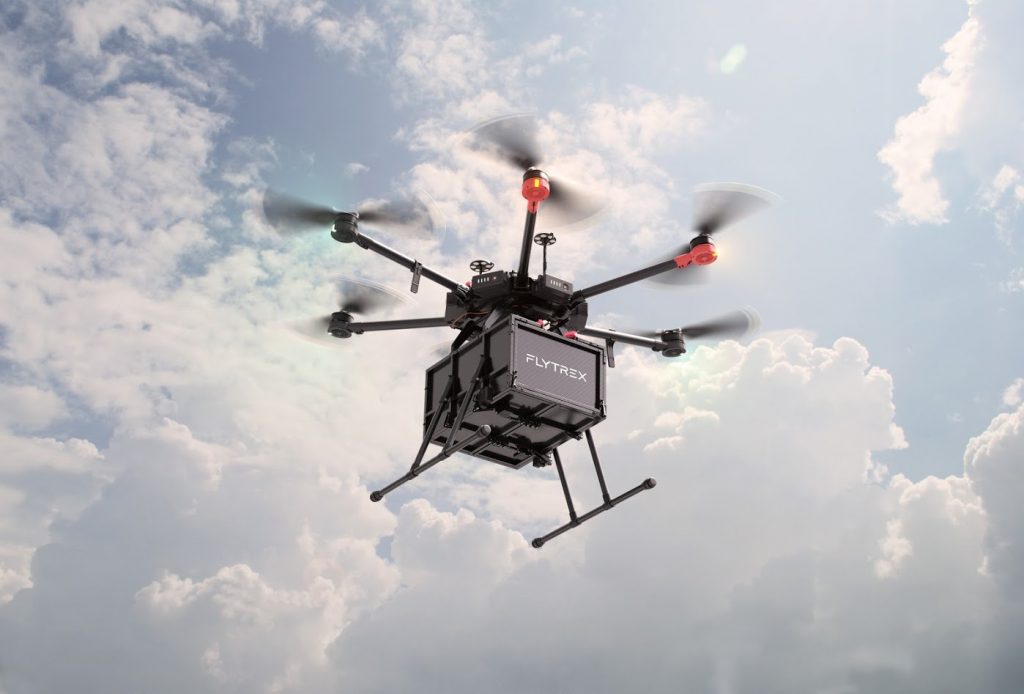
Kryon Systems develops AI-powered software robots, or Robotic Process Automation (RPA), for enterprise automation. Last month, Kryon built an RPA solution for Maccabi Health Services, Israel’s second-largest HMO, to integrate its testing of COVID-19 patients with the Israeli Health Ministry.
Freightos developed an online freight platform helping importers and manufacturers of all sizes remotely maintain global imports/exports despite rapid supply chain shifts caused by the pandemic, according to OurCrowd, one of the company’s investors.
Tracking tech
Hamagen is an Israeli app launched by the Health Ministry that cross-references information about the location of a confirmed COVID-19 patient with the location of the app user. The app instructs users on what steps to take if they’ve been near a confirmed patient and offers that they self-report for quarantine where relevant.
Globekeeper is an Israeli company that developed a secured collaboration platform for law enforcement, security personnel, first responders, and public safety agencies. It worked with the Israeli Health Ministry on the Hamagen app. It also launched the SAFE app, a voluntary network that gives users the ability to cross-reference their location history with known coronavirus patients
Track Virus is an Israeli-developed app that notifies users if they’ve crossed paths with a person confirmed to have tested positive for COVID-19
Corsight AI is a developer of a real-time facial recognition platform that it says is capable of identifying individuals within population centers and contending with facial coverings and disguises, poor lighting, long-distance identification, and difficult angles. The platform can recognize faces, even if they are hidden by face masks, protective goggles, and plastic face shields, a combination common among medical staff treating COVID-19 patients, the company says.
Digital tools and mobility services
Waycare, an Israeli-founded smart mobility company, is using its AI tech to identify coronavirus hotspots in the US.
Via, an Israeli-founded public transport company now valued at over $2 billion, has responded to the crisis by helping cities and municipalities launch effective on-demand transportation for essential staff, emergency services, food deliveries, and medical goods and services.
IP Gallery develops systems for smart cities including for transportation, air and water quality, flood monitoring, and public safety. During the crisis, IP Gallery is helping cities and governments with “real-time management tools and automatic execution of emergency plans to overcome the virus spreading, mitigate casualties, and help preserve communities’ health and urban life normality with minimal socio-economic impact.”
EyePark provides fast, automated authentication of drivers in drive-through facilities.
Uniper Care created a platform to help the elderly stay socially connected, and has been used to keep up morale for Israeli patients at the Sheba Medical Center.
Kaltura is a leading Israeli-founded video technology provider that has helped businesses and companies create a summit environment and keep operating remotely
Verbit‘s AI-powered transcription platform is being used by universities including Harvard to transcribe classes for students who are getting used to remote learning environments amid the pandemic.
Related posts

Editors’ & Readers’ Choice: 10 Favorite NoCamels Articles

Forward Facing: What Does The Future Hold For Israeli High-Tech?

Impact Innovation: Israeli Startups That Could Shape Our Future


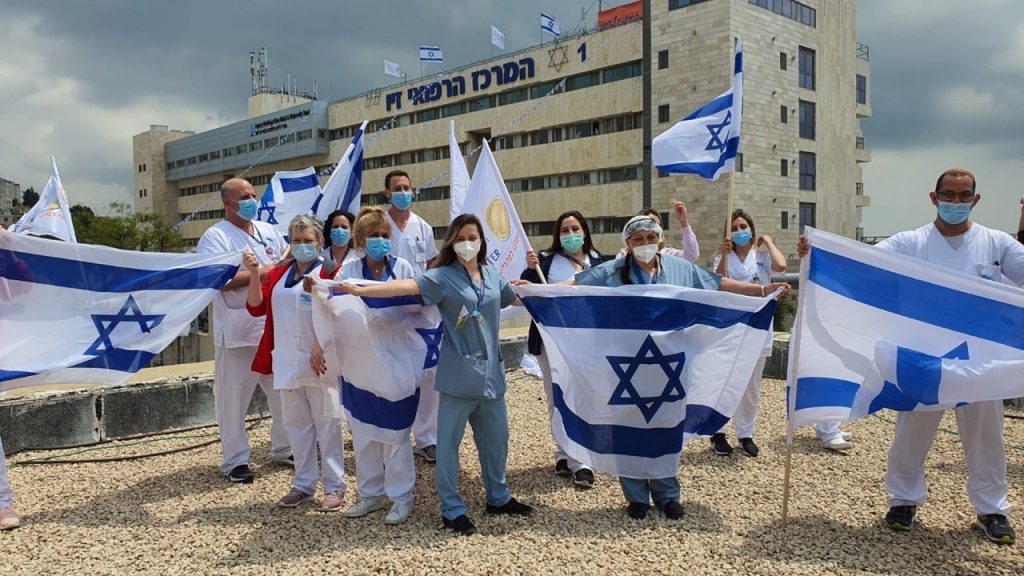
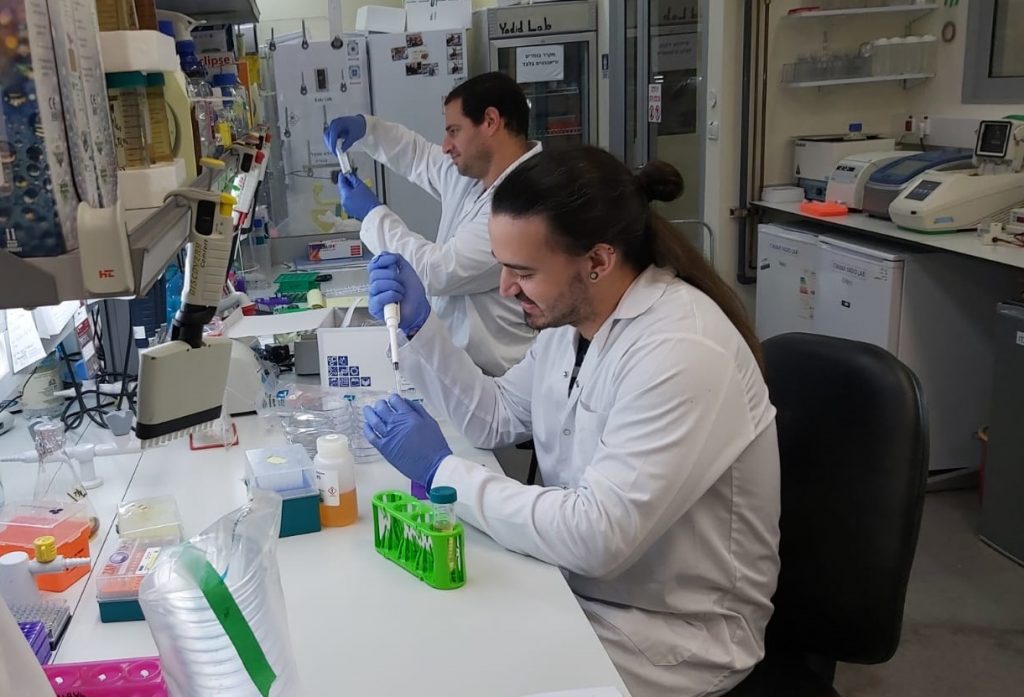

Facebook comments